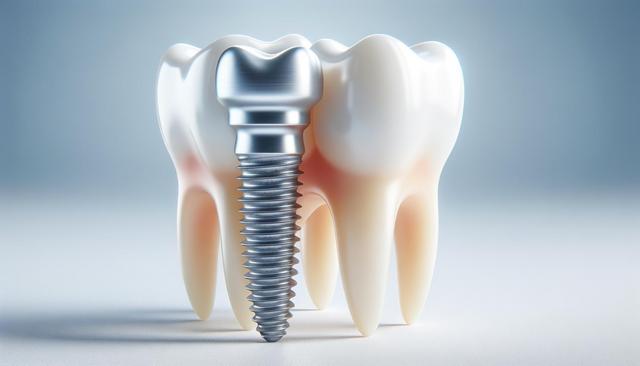What Are Dental Implants?
Dental implants are artificial tooth roots, typically made of biocompatible titanium, that are surgically placed into the jawbone to support replacement teeth such as crowns, bridges, or dentures. Designed to mimic the function and appearance of natural teeth, dental implants have become a widely accepted treatment for tooth loss. Unlike removable dentures, implants are a fixed solution, which contributes to their stability and comfort. Once fully integrated with the bone, they provide a reliable foundation for chewing and speaking, often matching or surpassing the performance of natural teeth in these functions.
This treatment is generally recommended for individuals who have lost teeth due to injury, decay, or periodontal disease. One of the key benefits is the preservation of jawbone density, which tends to decrease following tooth loss. By stimulating the bone through daily use, implants help prevent bone resorption, a common issue with other tooth replacement options.
The Dental Implant Process
The process of receiving dental implants involves several stages and requires collaboration between the patient and dental professionals. Typically, the journey begins with a comprehensive dental evaluation, including imaging studies such as X-rays or CT scans. These assessments help determine whether a patient has sufficient bone density and overall oral health to support the implants.
The main phases of the procedure include:
- Surgical placement of the implant into the jawbone
- Healing and osseointegration (the implant fuses with the bone)
- Placement of an abutment to connect the implant to the prosthetic tooth
- Attachment of the final crown, bridge, or denture
While the entire process can take several months to complete, the outcome is a long-term solution that often lasts decades with proper care. Temporary restorations may be provided during the healing phase to maintain aesthetics and function.
Candidates for Dental Implants
Not everyone is an immediate candidate for dental implants, but advancements in dental technology have made the treatment accessible to more people than ever before. Ideal candidates typically have:
- Healthy gums and sufficient bone to anchor the implant
- Good oral hygiene habits
- No uncontrolled chronic conditions like diabetes or heart disease
- A non-smoking lifestyle, as tobacco use can hinder healing
For those who lack sufficient bone structure, bone grafting procedures may be recommended before implant placement. These grafts help rebuild the jawbone, increasing the likelihood of successful integration and long-term implant function. Additionally, some patients may benefit from mini implants or alternative designs depending on their individual needs.
Advantages of Dental Implants
Dental implants offer several advantages over traditional tooth replacement methods. One of the key benefits is their natural appearance and feel, which enhances confidence in both personal and professional settings. Other notable advantages include:
- Improved ability to chew and speak without worry
- Longevity—many implants last 20 years or longer with proper care
- No impact on adjacent teeth, unlike bridges which rely on neighboring teeth for support
- Preservation of facial structure by preventing bone loss
Patients often report that implants provide a sense of permanence and security, which is especially valuable when compared to the shifting or discomfort sometimes associated with removable dentures. Also, because they are rooted in the jawbone, implants do not require adhesives or special cleaning routines beyond standard oral hygiene practices.
Post-Treatment Care and Maintenance
Proper care is essential to the long-term success of dental implants. Although they are not susceptible to decay like natural teeth, implants can still be affected by gum disease or peri-implantitis—a condition similar to periodontitis that affects the tissues around the implant. Maintaining a regular oral hygiene routine is crucial, including:
- Brushing at least twice daily with a soft-bristled toothbrush
- Flossing around the implant and adjacent teeth
- Using antimicrobial mouthwash as recommended
- Scheduling regular dental checkups and cleanings
Dental professionals may also suggest the use of special tools like interdental brushes or water flossers to clean hard-to-reach areas. Patients should avoid habits that can damage implants, such as chewing ice, biting hard objects, or grinding teeth. If any discomfort, swelling, or looseness is noticed, it’s important to contact a dentist promptly to address potential issues early.
Conclusion: Is a Dental Implant Right for You?
Dental implants are a durable and aesthetically pleasing solution for those dealing with tooth loss. They offer long-lasting benefits that go beyond appearance, contributing to better oral health, improved function, and enhanced quality of life. While the process requires time and commitment, many individuals find the investment worthwhile due to the stability and confidence implants provide.
Before deciding on treatment, it’s essential to consult with a qualified dental professional who can determine your suitability and guide you through the available options. With advancements in technology and techniques, dental implants have become a reliable option for many patients, helping them restore their smile and maintain their oral health for years to come.



Leave a Reply